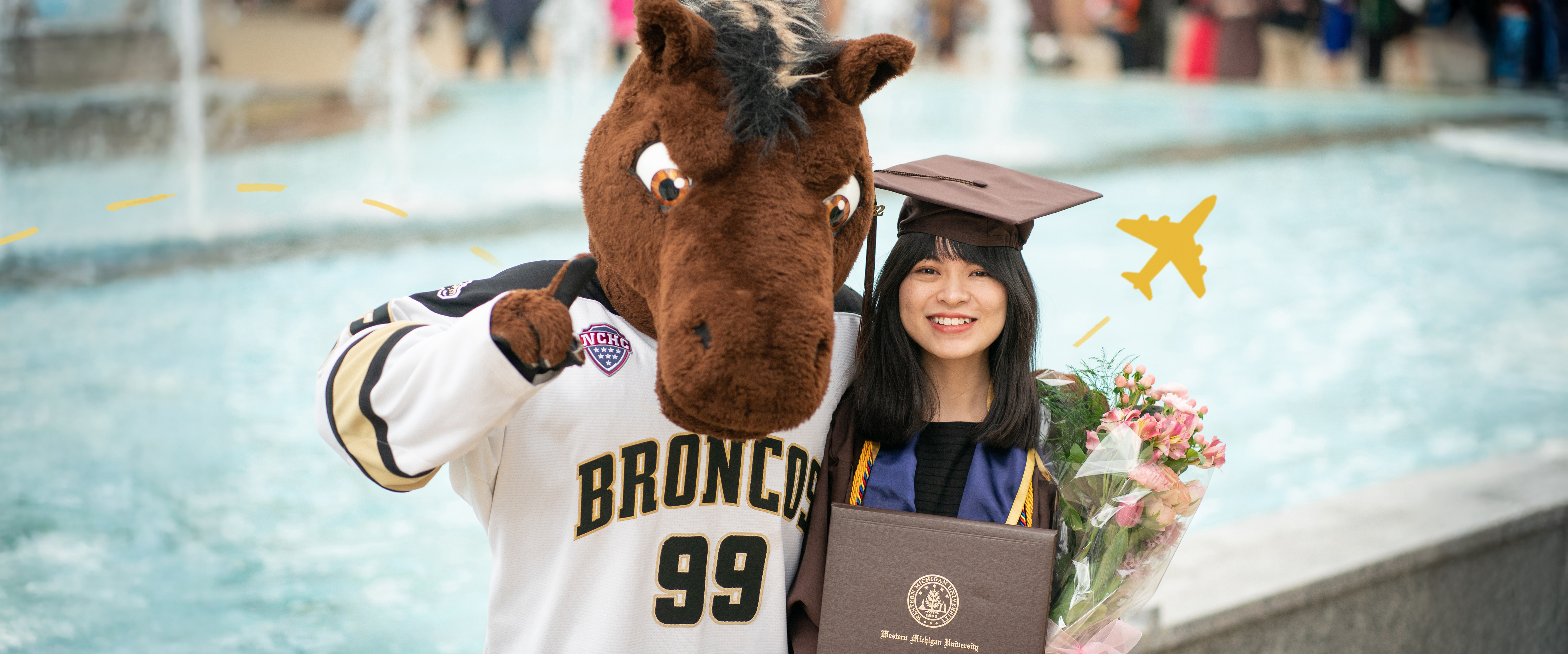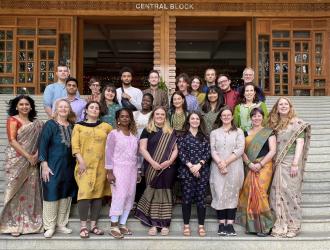
With strong international partnerships, a growing number of study abroad experiences and faculty research on a variety of global business topics, the Haworth College of Business is the recognized leader among the academic colleges at WMU for global engagement.
Powerful partnerships
With the changing demographics in the Midwest for college-bound students, WMU Haworth made a strategic decision more than a decade ago to cultivate global partnerships where there are win-win opportunities.
One of the most successful of those is the partnership with the Guizhou University of Finance and Economics (GUFE) in China where students can earn a WMU degree while remaining in the country. Many students around the world have a desire for a business degree from the United States, but the complex logistics of coming to the U.S. and an inclination to stay near family can impact the decision to come to WMU. Recognizing the aspirations but also the limitations, WMU Haworth sought out the leadership at GUFE to see if a collaboration made sense. It did, and 10 years later more than 1,100 students are enrolled, with WMU professors traveling to China each year to teach.
WMU Haworth is also looking to build upon existing global partnerships at Universidad Iberoamericana (UNIBE) in the Dominican Republic, Christ University in India, and Chung Shou Knowledge Management Global Learning Center (CSKM) in Taiwan with its in-person offerings. And new online programs in Asia are under development. “Our programs are all built on mutual trust and personal relationships, and sustaining these efforts takes intentionality and resources,” says Dr. Devrim Yaman, associate dean for undergraduate programs. Yaman notes that the goal is to make inroads where there is already name recognition for WMU, offering undergraduate programs where the college has historically offered graduate programs and vice versa.
“Whether the courses are delivered by WMU faculty in another country, to international students on WMU’s campus, or synchronously online, our goal is for students to feel a sense of belonging on day one,” she says. “Connections with faculty, dedicated advising and a tailored approach to each student’s unique goals are paramount.”
The partnerships with educational institutions abroad also yield tangible benefits for domestic students. “We have a business model with our partners that allows us to share the financial resources with both international students in their home country and also with WMU business students on our campus, providing an experience-driven business education to both groups,” says Yaman.
Study abroad success
WMU Study Abroad hosts more than 80 programs around the world, and approximately 20 of those each year are business-focused programs. “Student interest has not only rebounded but grown following the COVID-19 pandemic,” says Dr. Steve Newell, associate dean for graduate programs and operations.
“We have recently added short-term study abroad programs in Portugal, Ireland, Japan, Poland, Taiwan and Spain, and we see undergraduate and graduate students alike interested in these shorter-term programs.”
What makes study abroad programs so attractive to students?
- Study abroad scholarships of $1,000 for short-term programs and $2,000 for long-term programs are available to every business student to encourage global engagement.
- Established programs that have been running more than a decade and new programs.
- Courses that focus on everything from global negotiation to global accounting standards to sustainable business practices to food marketing around the world appeal to a variety of students.
“Many of our students are looking for a way to expand their global business knowledge, gain more experience with international business environments and push themselves outside their comfort zone so that they have greater international confidence,” says Newell. “We know that study abroad increases student success and builds the capacity for flexibility, problem solving and communication in a way that few other experiences can. In our faculty-led courses, students have the support of their designated faculty member as well.”




